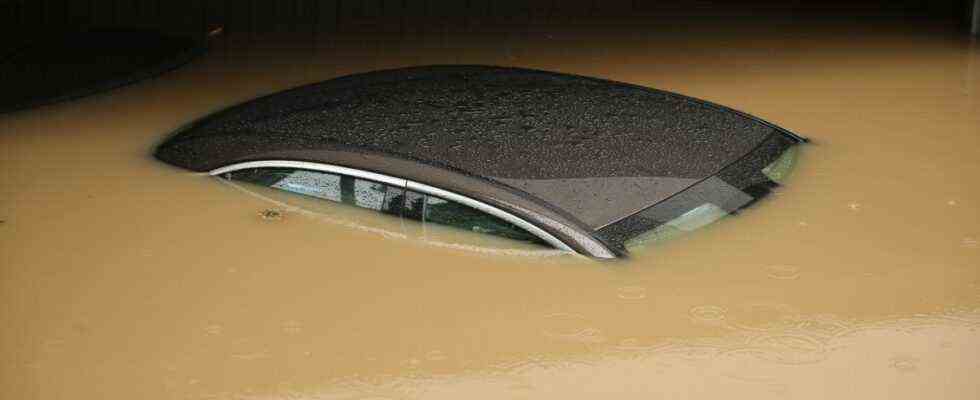For some, the previous summer has been more than just rainy: in parts of Franconia there was heavy rain and otherwise sluggishly flowing rivers overflowed and in some places even flooded the centuries. Roads and bridges were flooded, cellars overflowed, entire towns were surrounded by masses of water in which mice, moles and snails drifted. Grasses poking out of the flooded landscape were black with ants, beetles and grasshoppers trying to escape into the dry. Eyewitnesses describe what they saw as “apocalyptic”. When the water withdrew and evaporated, the smell of mud and rot lingered in the air.
Overall, the summer in Germany has been far too wet so far. Even the June precipitation, at 96 liters per square meter, was ten liters above the average of the internationally valid reference period from 1961 to 1990. And in the first half of July, at around 68 liters per square meter, 86 percent of the target was already met.
This is due to a general weather situation that has persisted over Germany since the beginning of the month: low pressure areas that bring humid, humid air from the Mediterranean region. “When the sun shines in there, which has its greatest power at this time of year, the atmosphere boils and large amounts of precipitation can unload,” says Andreas Friedrich, spokesman for the German Weather Service (DWD) in Offenbach. “That’s exactly what happened now.”
That it hit Franconia so hard? Coincidence, my meteorologists
Climate change also plays a role: When the earth warms up, the atmosphere can absorb more water vapor. With one degree of warming, that’s seven percent. Correspondingly more can then rain down. Overall, Germany has already warmed up by around two degrees Celsius since the beginning of industrialization, but the current situation is decisive: And June in Germany, with an average of 19 degrees Celsius, was even 3.6 degrees warmer than the average of the reference period. The previous July value is still around 0.7 degrees Celsius above.
So if it rains in extreme amounts, then climate change may also have had a say. Like last time in Franconia or in the Ore Mountains, where heavy rain fell this week and triggered flash floods. In North Rhine-Westphalia, continuous rain led to flooded streets and full cellars, and entire slopes slipped. In Erkrath, a city near Düsseldorf, the city even appealed to its residents not to shower anymore, since the sewers were overcrowded by the heavy rain and the sewer system should not be further overloaded.
Friedrich describes it as a “coincidence” that it hit Franconia in particular and now also large parts of southern and eastern Germany and North Rhine-Westphalia. “Our rain radar analysis of the past 20 years shows: Heavy rain events can occur anywhere in Germany because they are due to the chaotic system. “
Because experts anticipate an increase in heavy rain due to climate change and torrential rain is already the new normal, they recommend that you adapt quickly: especially in cities that have sealed off large areas with streets and squares. If they were to expand their green spaces, the water could seep away there. But rainwater can also be drained off or collected better than before.

